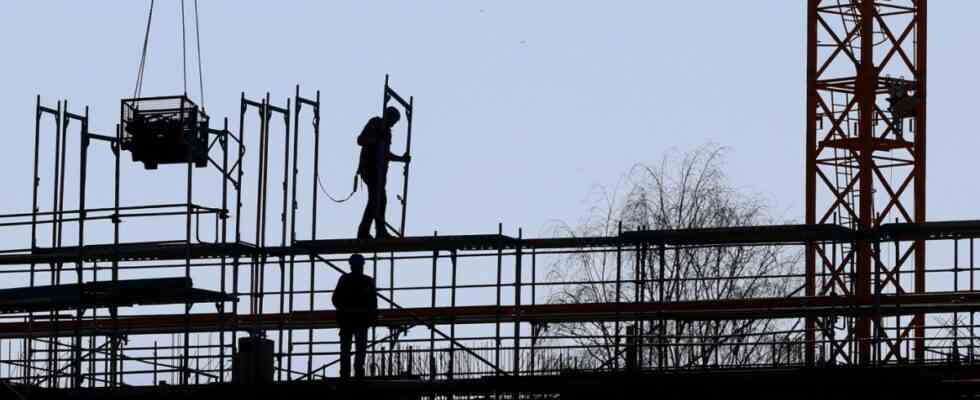The state government wants to counteract the tense situation on the rental market in large parts of Bavaria with a “housing booster”. The aim of the measures, which the cabinet of Prime Minister Markus Söder (CSU) discussed on Monday, is to boost housing construction in the Free State even in times of crisis. The real estate industry is talking about “dark clouds” for the challenging year 2023 and has already started to cancel new construction projects, said Building Minister Christian Bernreiter (CSU). He is concerned with standing for stability as a free state and thus acting anti-cyclically. Meanwhile, Bernreiter issued a decent interim report for the Free State’s own construction activities, which had been sluggish to date – through Bayernheim, which was launched in 2018: The company had “greatly increased the pace”.
First of all, the impulses for construction activity in the state decided by the cabinet: A “massive increase” in the Bavarian housing construction subsidy programs should offer incentives to builders who see themselves slowed down by the jump in interest rates when financing their projects. Among other things, higher subsidies for rental housing, improved conditions for loans and extra funding for the realization of projects in town centers were decided. Bernreiter is also demanding measures from the federal government so that more living space is created: for example with taxes and depreciation in the construction of rental apartments or funding from the KfW, the credit institution for reconstruction. The traffic light must “overcome ideological hurdles”. Bavaria is planning a Federal Council initiative for the reintroduction of child benefit.
There are also innovations from the cabinet at Bayernheim-Gesellschaft: Each of their projects is backed with equity, explained Bernreiter. And in order to be able to push the “positive development” forward unchecked, Bayernheim’s equity will be increased by a quarter of a billion to 750 million euros. The balance sheet of the company founded by Söder in 2018 looks extremely poor at first glance. Less than five years later, tenants have not yet moved into a single home-built apartment. As research by SZ recently showed, Bayernheim currently only has 234 apartments in its portfolio, all of which were purchased; In addition, 806 units are currently under construction, and almost 3,500 other apartments are in the planning or development stage. Söder’s founding target of building 10,000 affordable homes by 2025 will almost certainly be missed. In the eyes of the opposition in the state parliament, the whole project “failed with a bang.” SPD leader Florian von Brunn is calling for an external commission to deal with the apparent malaise. Sebastian Körber (FDP) said on Monday: “It is an absolute mystery to me why additional money should be pumped into Bayernheim, which operates completely underground.”
However, the most recent progress should not be completely disregarded: that adds up to a good 4,500 apartments “in the pipeline”, as Bernreiter called it on Monday. He believes that this is something to be proud of, even if: “You can’t do magic there.” Bernreiter, formerly a district administrator in Deggendorf, only took office in February 2022 as part of a cabinet reshuffle. Söder’s ambitious target of 10,000 apartments was recently apparently rather coyly concealed in CSU circles. Bernreiter even performed it himself in the press conference after the cabinet – probably to capture the opposition’s thesis that the government could quietly say goodbye to it in the election year. According to Bernreiter, the target is “not somewhere utopian”. But despite crises like Corona and the Ukraine war, we are on “a very good path” there, “I won’t let that deter me”.

